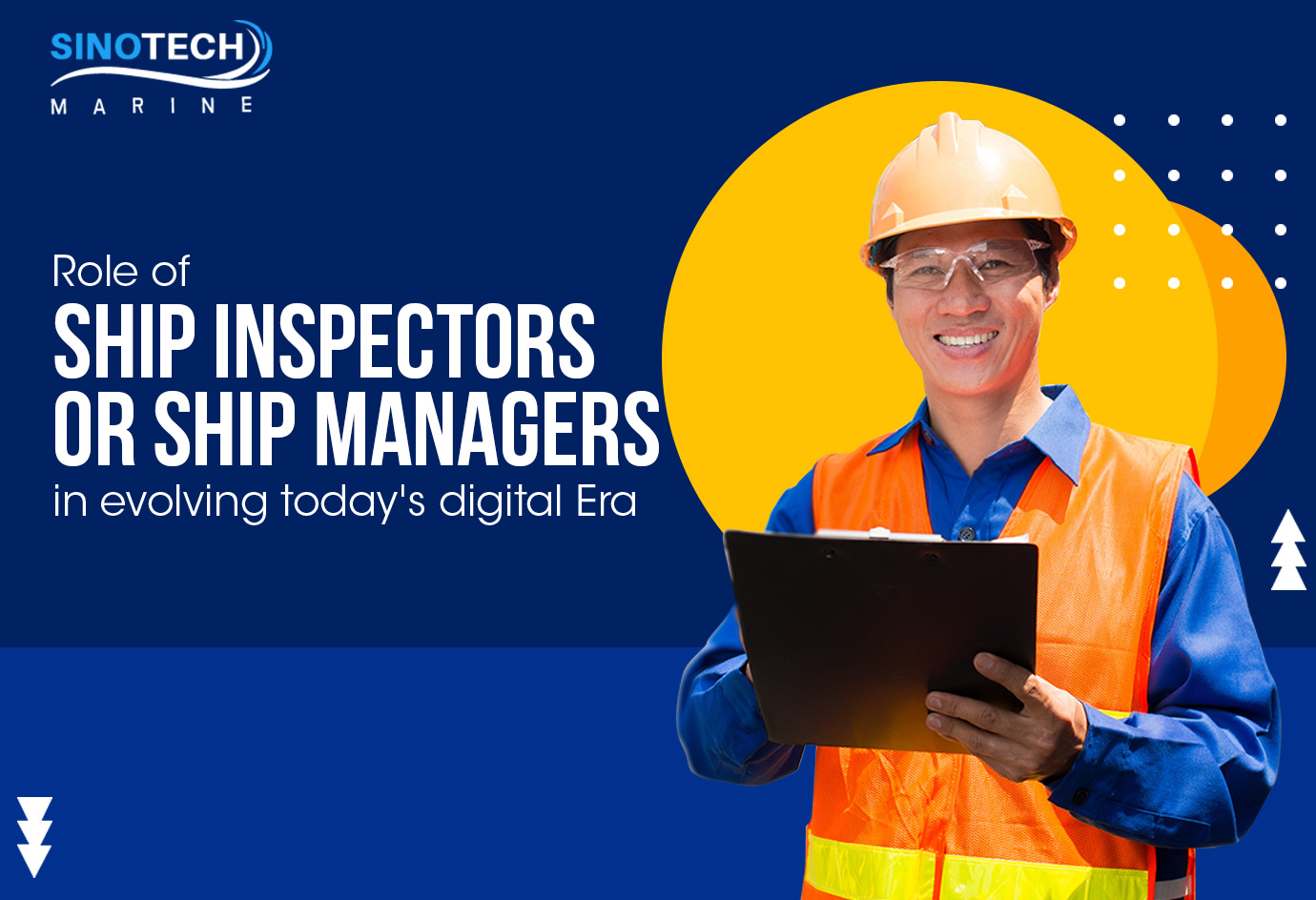
The digital revolution has taken the world by storm and is transforming the global business as we know it. The speed at which data is shared, stored, and analyzed in volumes digitally is increasing exponentially every year. And, as almost every industry has made a move towards digitalization, how could the maritime industry stay behind?
Digital technology is already sweeping through the maritime world at an unprecedented rate- and an increase in remote work, predictive maintenance, and unmanned platforms are a few changes in its day-to-day operations. The quest to explore the benefits of increased digitalization has led to the use of new digital technologies and adaptations being made to the existing ones. This growing interest in advanced
ship inspection technologies, the increasing complexities of maritime assets, and other associated activities have prompted a shift in how the classification services are offered.
These inspection technologies- unmanned aerial vehicles (UAV), crawlers, remotely operated vehicles (ROV), and wearable technologies are programmed to capture and share information and support survey data sharing with people on the asset during the inspection. Apart from this, these technologies are capable of enhancing the efficacy of ship surveys, decreasing the operational downtime and expenses of the vessel- all while improving safety.
The inevitable change of digitalization has also affected the ship inspector’s role and business in the maritime industry-
Enhance Traditional Inspection Methodologies
Accepting digitalization has enabled ship inspectors to improve their internal practices and increase efficiency in the overall inspection experience. Digitalization has transformed the traditional inspection methodologies as ship inspectors are now making the shift from perspective to a risk-based inspection regime.
Make informed Decisions
The new technologies have paved their way into areas such as hull coatings as well. With digitalization, ship inspectors and operators can make more informed decisions to improve the hull’s efficiency by pushing for optimal performance and regulatory compliance. This also enables ship inspectors to identify problems that may arise, long before fouling impacts the ship’s performance, thus allowing them to make decisions faster.
Control Costs and Improve Efficiency
The maritime industry is under continuous pressure to comply with environmental and other regulations while controlling costs and improving efficiency. Technologies like the Internet of Things, big data, automation, and robotics are leading to various significant changes in the way inspectors and their companies operate.
Wrapping Up
Digitalization, if supported by the maritime industry’s protocols, standards, and shipping companies, is set to provide a strong foundation for efficient shipping in the future through its technologies.
Sinotech Marine takes immense pride in leading classification into the digital future by adopting new technologies. We are a leading maritime consultancy offering optimum quality
ship inspection and monitoring services for maritime assets at competitive prices. With a team of more than 310 professionals worldwide, we strive to deliver innovative solutions through our exceptional range of services to our clients. Call now or visit our website to connect with us for a service or an inquiry.
 The digital revolution has taken the world by storm and is transforming the global business as we know it. The speed at which data is shared, stored, and analyzed in volumes digitally is increasing exponentially every year. And, as almost every industry has made a move towards digitalization, how could the maritime industry stay behind?
Digital technology is already sweeping through the maritime world at an unprecedented rate- and an increase in remote work, predictive maintenance, and unmanned platforms are a few changes in its day-to-day operations. The quest to explore the benefits of increased digitalization has led to the use of new digital technologies and adaptations being made to the existing ones. This growing interest in advanced ship inspection technologies, the increasing complexities of maritime assets, and other associated activities have prompted a shift in how the classification services are offered.
These inspection technologies- unmanned aerial vehicles (UAV), crawlers, remotely operated vehicles (ROV), and wearable technologies are programmed to capture and share information and support survey data sharing with people on the asset during the inspection. Apart from this, these technologies are capable of enhancing the efficacy of ship surveys, decreasing the operational downtime and expenses of the vessel- all while improving safety.
The inevitable change of digitalization has also affected the ship inspector’s role and business in the maritime industry-
The digital revolution has taken the world by storm and is transforming the global business as we know it. The speed at which data is shared, stored, and analyzed in volumes digitally is increasing exponentially every year. And, as almost every industry has made a move towards digitalization, how could the maritime industry stay behind?
Digital technology is already sweeping through the maritime world at an unprecedented rate- and an increase in remote work, predictive maintenance, and unmanned platforms are a few changes in its day-to-day operations. The quest to explore the benefits of increased digitalization has led to the use of new digital technologies and adaptations being made to the existing ones. This growing interest in advanced ship inspection technologies, the increasing complexities of maritime assets, and other associated activities have prompted a shift in how the classification services are offered.
These inspection technologies- unmanned aerial vehicles (UAV), crawlers, remotely operated vehicles (ROV), and wearable technologies are programmed to capture and share information and support survey data sharing with people on the asset during the inspection. Apart from this, these technologies are capable of enhancing the efficacy of ship surveys, decreasing the operational downtime and expenses of the vessel- all while improving safety.
The inevitable change of digitalization has also affected the ship inspector’s role and business in the maritime industry-